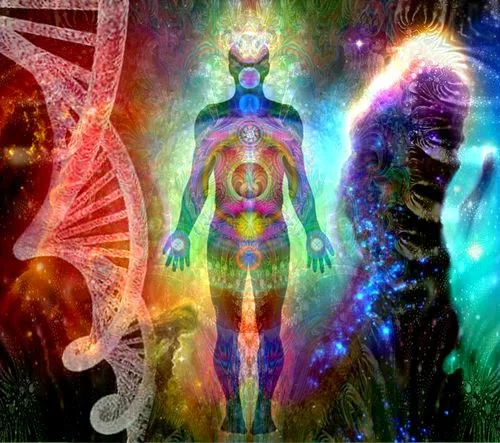The 'Stoned Ape' Theory Might Explain Our Extraordinary Evolution
The 'Stoned Ape' Theory Might Explain Our Extraordinary Evolution
A scientist resurfaces a psychedelic retelling of human evolution.
magine Homo erectus, a now-extinct species of hominids that stood upright and became the first of our ancestors to move beyond a single continent. Around two million years ago, these hominids, some of whom eventually evolved into Homo sapiens, began to expand their range beyond Africa, moving into Asia and Europe. Along the way, they tracked animals, encountered dung, and discovered new plants.
But that’s just the version of our origin story that happens to be widely accepted by scientists.
A more radical interpretation of these events involves the same animals, dung, and plants but also includes psychedelic drugs. In 1992, ethnobotanist and psychedelics advocate Terence McKenna argued in the book Food of the Gods that what enabled Homo erectus to evolve into Homo sapiens was its encounter with magic mushrooms and psilocybin, the psychedelic compound within them, on that evolutionary journey. He called this the Stoned Ape Hypothesis.
McKenna posited that psilocybin caused the primitive brain’s information-processing capabilities to rapidly reorganize, which in turn kick-started the rapid evolution of cognition that led to the early art, language, and technology written in Homo sapiens’ archeological record. As early humans, he said we “ate our way to higher consciousness” by consuming these mushrooms, which, he hypothesized, grew out of animal manure. Psilocybin, he said, brought us “out of the animal mind and into the world of articulated speech and imagination.”
As human cultural evolution led to the domestication of wild cattle, humans began to spend a lot more time around cattle dung, McKenna explained. And, because psilocybin mushrooms commonly grow in cow droppings, “the human-mushroom interspecies codependency was enhanced and deepened. It was at this time that religious ritual, calendar making, and natural magic came into their own.”
McKenna, who died in 2000, passionately believed in his hypothesis, but it was never seriously considered by the scientific community during his lifetime. Dismissed as excessively speculative, McKenna’s hypothesis now only pops up occasionally in online message boards and Reddit pages dedicated to psychedelics.
However, a talk in April at Psychedelic Science 2017, a scientific conference on psychedelics attended by researchers, therapists, and artists who believe in the therapeutic potential of these drugs, renewed interest in the theory. There, Paul Stamets, D.Sc., a noted psilocybin mycologist, advocated for the Stoned Ape Hypothesis in his talk, “Psilocybin Mushrooms and the Mycology of Consciousness.”
“I present this to you because I want to bring back the concept of the Stoned Ape Hypothesis,” Stamets said to the crowd. “What is really important for you to understand is that there was a sudden doubling of the human brain 200,000 years ago. From an evolutionary point of view, that’s an extraordinary expansion. And there is no explanation for this sudden increase in the human brain.”
The “doubling” he talked about refers to the sudden growth in the size of the human brain, and he’s right: The details are still up for debate. Some anthropologists believe that the brain size of Homo erectus doubled between 2 million and 700,000 years ago. Meanwhile, it’s estimated that the brain volume in Homo sapiens grew three times larger between 500,000 and 100,000 years ago.
READ FULL ARTICLE HERE: https://www.inverse.com/article/34186-stoned-ape-hypothesis
“In recent years, drug researchers have determined that psilocybin induces a state of “unconstrained cognition,” triggering a pronounced surge in activity in the primitive brain network, the region associated with emotional reactions. On psilocybin, the parts of the brain linked to emotions and memory become more coordinated, creating brain activity patterns resembling those of people who are asleep and dreaming. At the same time, the region that controls higher-level thinking and is linked to a sense of self becomes disorganized, which is why some people who take psilocybin feel a loss of “ego,” leading them to feel more a part of the world than they do their own bodies.”

